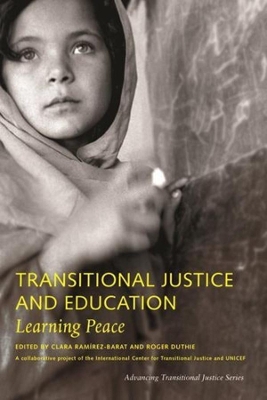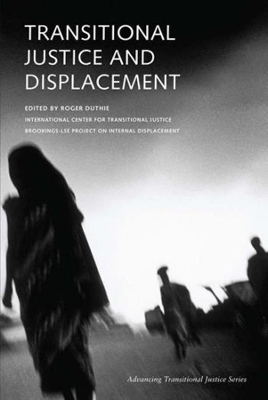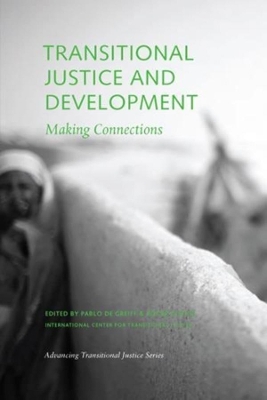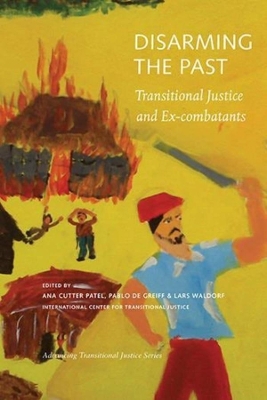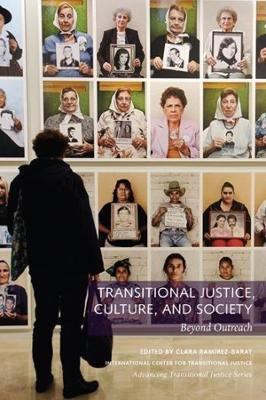Advancing Transitional Justice
5 total works
Transitional Justice and Education – Learning Peace
by Clara Ramirez-barat and Roger Duthie
Published 22 November 2016
After periods of conflict and authoritarianism, educational institutions often need to be reformed or rebuilt. But in settings where education has been used to support repressive policies and human rights violations, or where conflict and abuses have resulted in lost educational opportunities, legacies of injustice may pose significant challenges to effective reform. Peacebuilding and development perspectives, which normally drive the reconstruction agenda, pay little attention to the violent past. Transitional Justice and Education: Learning Peace presents the findings of a research project of the International Center for Transitional Justice on the relationship between transitional justice and education in peacebuilding contexts. The book examines how transitional justice can shape the reform of education systems by ensuring programs are sensitive to the legacies of the past, how it can facilitate the reintegration of children and youth into society, and how education can engage younger generations in the work of transitional justice.
Transitional justice is often pursued in contexts where people have been forced from their homes by human rights violations and have suffered additional abuses while displaced. Little attention has been paid, however, to how transitional justice measures can respond to the injustices of displacement. Transitional Justice and Displacement is the result of a collaborative research project of the International Center for Transitional Justice and the Brookings-LSE Project on Internal Displacement. It examines the capacity of transitional justice measures to address displacement, engage the justice claims of displaced persons, and support durable solutions, and analyzes the links between transitional justice and the interventions of humanitarian, development, and peacebuilding actors. The book makes a compelling case for ensuring that justice measures address displacement and that responses to displacement incorporate transitional justice.
Transitional Justice and Development – Making Connections
by Pablo De Greiff and Roger Duthie
Published 13 August 2009
As developing societies emerge from legacies of conflict and authoritarianism, they are frequently beset by poverty, inequality, weak institutions, broken infrastructure, poor governance, insecurity, and low levels of social capital. These countries also tend to propagate massive human rights violations, which displace victims who are marginalized, handicapped, widowed, and orphaned--in other words, people with strong claims to justice. Those who work with others to address development and justice often fail to supply a coherent response to these concerns. The essays in this volume confront the intricacies--and interconnectedness--of transitional governance issues head on, mapping the relationship between two fields that, academically and in practice, have grown largely in isolation of one another. The result of a research project conducted by the International Center for Transitional Justice (ICTJ), this book explains how justice and recovery can be aligned not only in theory but also in practice, among both people and governments as they reform.
Disarming the Past – Transitional Justice and Ex–Combatants
by Ana Cutter Patel, Pablo De Greiff, and Lars Waldorf
Published 19 July 2010
For the past twenty years, international donors have invested heavily in large-scale disarmament, demobilization, and reintegration (DDR) programs, while, at the same time, transitional justice measures have proliferated, bringing truth, justice, and reparations to those recovering from state violence and civil war. Yet DDR programs are seldom deconstructed to discover whether they truly achieve their justice-related aims. Additionally, transitional justice mechanisms rarely articulate strategies for coordinating with DDR. Disarming the Past examines the connections--and failures--between these two initiatives within peacebuilding contexts and evaluates future links between DDR programs and the aims of transitional justice. The outcome of a substantial research project initiated by the International Center for Transitional Justice (ICTJ), this book is crucial for anyone interested in effective interventions and enduring outcomes.
Transitional Justice, Culture, and Society – Beyond Outreach
by Clara Ramirez-barat
Published 4 March 2014
Transitional justice processes have a fundamental public dimension. Their impact depends in part on the social support they receive. For this reason, transitional justice bodies have increasingly implemented outreach programs. Beyond the role of outreach, however, other initiatives-such as media and cultural interventions-can strengthen, but also in some cases undermine, the public resonance of transitional justice. How can media and art be used to engage society in discussions about accountability and redress? How do media influence social perceptions and attitudes toward the legacy of the past? To what extent is social engagement in the public sphere necessary to advance the political transformation that transitional justice measures try to promote? Examining the roles that society and culture play in transitional justice contexts, the essays in this volume focus on the ways in which communicative practices can raise public awareness of and reflection on the legacies of mass abuse.
